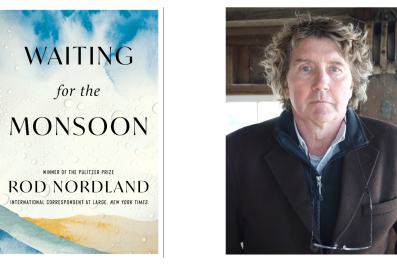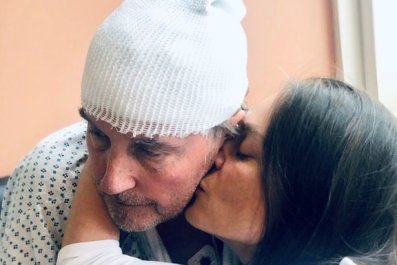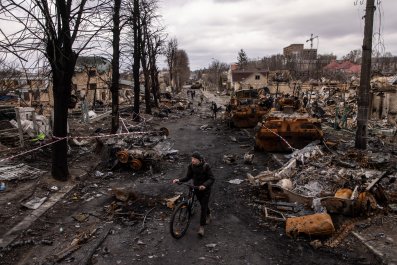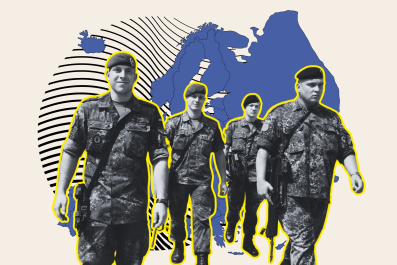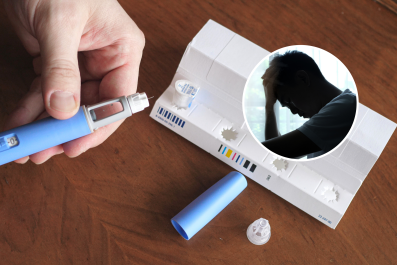"We all assume that just by the way [Shirley Chisholm] carried herself that this is a 'strong woman,' but there's a lot that comes with being a strong human being."
Bringing the life story of activist Shirley Chisholm to screen wasn't an easy task for Regina King. "This has been a labor of love. My sister [Reina] and I have been at this for close to 15 years now." Netflix's Shirley (March 22) focuses on Chisholm's long shot 1972 presidential campaign after she became the first Black woman elected to Congress. At times "a lone wolf, literally" and isolated from movements Chisholm was a vocal advocate of, like the women's rights movement—which "was very disappointing and heartbreaking for her"—King's Chisholm shows the woman behind the trailblazer. "She is a daughter, she is a wife, she is those things that we all, no matter what color you are, can relate to." But she also got things done by "crossing party lines and getting some really huge changes, wage changes for Latino and Black people." It's in the expert hands of the Academy Award-winning King to show Chisholm's full spectrum, especially in those incredibly important quiet moments. "They are quiet moments, but they're so loud."
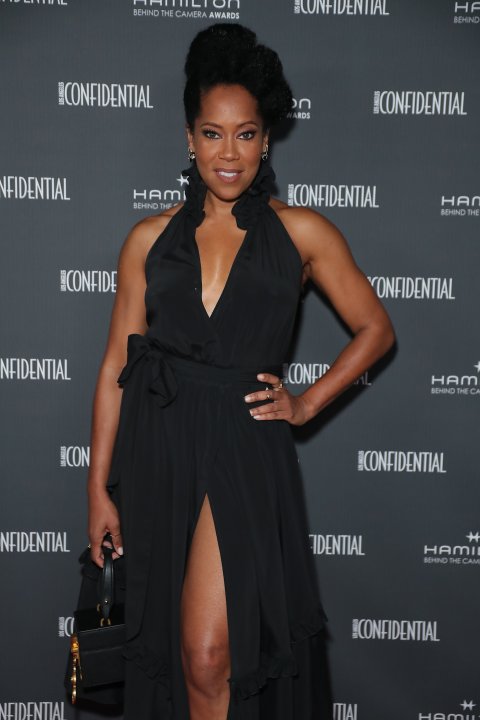
SUBSCRIBE TO THE PARTING SHOT WITH H. ALAN SCOTT
ON APPLE PODCASTS OR SPOTIFY
Editor's Note: This conversation has been edited and condensed for publication.
I have to say, I've been a massive fan of yours for so long, and I'm a big admirer of Shirley Chisholm. As soon as I saw the trailer for Shirley, I was like, I have to speak with her about this.
Oh, wow, that is so kind. This has been a labor of love. My sister and I have been at this for close to 15 years now, bringing a slice of Shirley's life story to life. So to hear that you received it, well, it really means a lot.
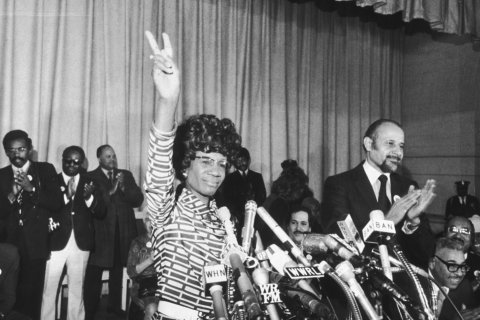
When I first learned about Shirley Chisholm, I'm sad to admit it was later in life, when I was adult. I remember being angry that I had never been educated about her in my youth, considering how important she is not only as a Black American, but also as a woman. I wanted to know when did you first become aware of Shirley?
It's an interesting thing. It's interesting that we're having this conversation in the tail end of Black History Month, because if you were lucky enough that your teacher chose Shirley Chisholm as part of the Black History curriculum, you know about her, if you weren't lucky enough, you didn't. And the interesting thing is, talking to friends that grew up in New York, versus me growing up in L.A., the people that were chosen to speak about during Black History Month are different because of the region. So I didn't learn anything at all about Marcus Garvey during Black History Month, but all my New York friends did. And they didn't learn about Charles Drew and we did here on the West Coast. So I think that has something to do it. But [Shirley] coming on my radar was probably in about the third grade during Black History Month. And then my mother being a teacher, she obviously just elaborated and educated us on her a little bit more. And I think because I'm born on the same day as Dr. [Martin Luther] King Jr., our mother also felt this need to show our ancestors who have done these amazing things that are the reason we have the opportunity to dream without boundaries. Cut to now, hopefully once this film goes out, no one will not know who Shirley is. But there's still people, even Black people, who did not know who Shirley was when we started.
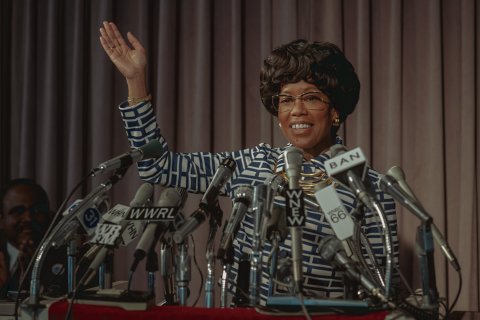
It does sometimes make me angry when people aren't aware of who she is. And their lack of knowledge, in a way, speaks to the very things she was grappling with during her day. She was talking about even within the Black experience, Black women were not being heard. She was living that in her time. And even after being the first Black woman elected to Congress, the first to run for president, we still aren't speaking about her. We aren't speaking about what she did. We're literally not doing the exact thing she was telling us we weren't doing then.
And we're not doing it within the political world. The things that she had gotten done, you know, crossing party lines and coming together, getting some really huge changes, wage changes for Latino and Black people. And that's still not happening. There's still this strong divide. And I continue[d] to learn so much as we were doing the research. Over this 15-year journey, I've learned so much more about her and understanding the things that were catalysts to make her say, "I can be a catalyst for change," you know?
There were a few things this film taught me about her I didn't know. Like how supportive her husband was or that she met with Governor George Wallace after he was shot in 1972. Did you learn anything new about her?
Absolutely. I think we all assume that just by the way she carries herself that this is a "strong woman," but there's a lot that comes with being a strong human being. Because you're strong, "Oh, you don't have any things that are happening in your life that feel like they're gonna break you." And when she was running for Congress, she actually had to have a tumor removed and still got up out of that hospital bed and continued that campaign and actually won. That's huge. Everything that her opponent was doing, all of the disparaging things that he was saying to discredit her, that she could have the strength to represent them, to hold that seat, but not once did she say in any of her campaigning that I'm fresh off of surgery and losing my life almost, you know? Because it means this much to me, because the community means this much to me, because our kids dying in a war that they don't even know why they're killing these people, they have no understanding of why we're even in Vietnam, why they're being sent there, it means that much to me. And so I thought that was a really great piece of information for the character study. And I learned during my research about her relationship with her father, and the tense relationship between her and her sisters and her mother. We all have our things, but we still find a way to get on the other side and push through. And I just really hope that one of the things that people take away is the humanity of Shirley. That she's just not this cyborg that knows how to speak really loud and isn't afraid to stand up to people, but that this is a woman who goes home and she is tired and her shoulders do drop. Then hopefully people can relate to that.
The other interesting thing about this is how it's often presented. I spoke about this with Colman Domingo about Rustin, but so often these films are presented in a Black Voices section, which is great, but as a lover of history it's like, no, these films are about American history.
I have been saying that for some time about anything that happens to [have] a Black person in the center of it. But the ripple effect and everything that surrounded that Black person has to do with America, not being a Black American.
And Shirley Chisholm defined so much of that era: the Vietnam War, Civil Rights, the anti-war movement, the women's rights movement—and how she wasn't even recognized with that particular movement. And what's great about this film is it really shows her personal struggles and frustrations with not feeling seen by many of the communities she felt she was speaking to.
Yeah, to be a lone wolf, literally. And as you pointed out, that was very disappointing and heartbreaking for her. I never got the opportunity to meet Shirley Chisholm, [but] I do feel like I was lucky enough to have deep conversations with her goddaughter, and that definitely gave me a lot of the colors that reminded me that she is a woman first. That she is a daughter, she is a wife, she is those things that we all, no matter what color you are, can relate to.
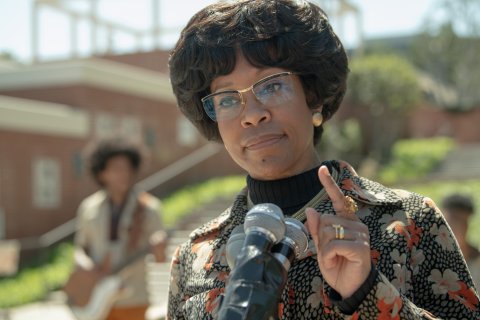
And to tell her story, you surrounded yourself with some crazy talented people. I mean, Terrence Howard, Lucas Hedges, the writer/director John Ridley, and the late Lance Reddick in his last performance. That must have been fun to be anchored by so many talented people.
Every single person in this film I was already a fan of before [making this movie]. Some of them I've worked with [before]. To be able to—because we were making this film for $2— that they would come on board knowing that this is a small film, knowing that this is a streamer film, to come on board to as we say play in the sandbox, because they knew how important this story was, is just mind blowing. To be able to because so often, when you're producing or directing a project, in the beginning stages, you have this wish list of actors that you want to go out to, and most of the time you're lucky if you get one of them. But to have Lucas Hedges, [who] was always who we talked about and we didn't even know each other, his Robert is just so precious and the relationship between Robert and Shirley is a really powerful one. Lance Reddick, you know was always our first choice and his work is absolutely beautiful and I know that his spirit is beaming. I believe that there's some moments in the film where his character Mac is looking at Shirley and I got emotional because it was like Shirley's team. I just felt in that moment that is Mac looking at Shirley like, "I got you girl." And they had a history that was rocky at some point, but then they were able to keep it going. And the way John Ridley wrote the script. One of the beautiful things about the way John writes is he leans into subtlety and nuance. He doesn't spell it out for you; it is for people who actually are leaning in and want to listen to the words and want to take in what the actors are doing.
I'm so glad you brought up the subtleties, because that's very apparent in the film. I recently spoke with Annette Bening about something similar, and she mentioned how that's the gift of film as opposed to stage, because it allows you to really get in close to the subtlety.
It's interesting, because, by the way, a love shoutout to Annette Bening. My friends and I, we have Annette Bening moments every couple years.
I can relate. I told her how angry I am that she's never won an Oscar and she laughingly was like, "Stay mad."
We're right there with you, H. Alan. Friends of mine, who, I'm thankful that they're not actors, every now and then take turns [imitating] the screaming [in American Beauty].
Oh, I have that with my friends, too, but it's the wine glass scene from The Kids Are All Right.
She's genius. It makes you proud to be a part of this community. Definitely. But yeah, it's so true what she's saying, that it's those little subtle things that you find yourself as an audience member gasping taking a deep breath. And it's because you hear yourself gasping, because they are quiet moments, but they're so loud.
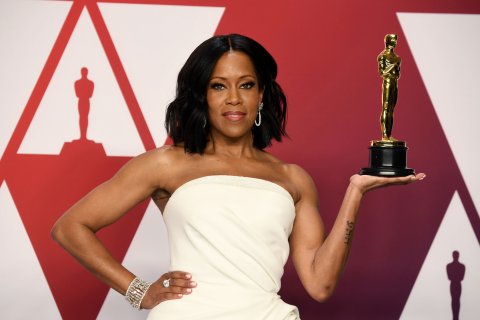
So true. Now you've had such a long career, from 227 as a kid to Shirley now, that your lifetime of work must inspire some interesting fan encounters. When someone approaches you about your work, are you able to identify what they're likely going to be a fan of?
Fully, but a lot of times I get it wrong. I'll see someone recognizing me and they're coming my way and I'll [make] an assumption that they're from a particular era, like, "Yeah, you're Enemy of the State." And then they'll come up and say the most random thing like, "I love Boondocks." It's really great. I think some of it, [like you] being one of the last of the millennials—you were one of the people that actually have pictures that are on actual paper that your parents developed at the photo lab. You used a CD. You've gotten an opportunity to see TV go from just being TV and some cable channels to streamers. So you got to see that change, and I think one of the cool things about streaming is that they have kind of revitalized some people's careers or have kept people, myself included, in the conversation. I mean, the amount of young girls that I get that are, I guess Gen Zers. You know, or the last of Gen Xers or whatever, who know Cinderella Story. Like "Oh, my God, you're Rhonda!" And I am not thinking about Cinderella. Like this 10-year-old, when I was walking my dog, and she saw me with her mom, and she was like, "Are you Rhonda?" She can see in my face. Like, who is Rhonda? Her babysitter? And she was like, "Cinderella Story!" And I'm like, "Oh, yeah, that was my character's name." So it's really cool. I'm grateful for it. I hope it keeps coming.



